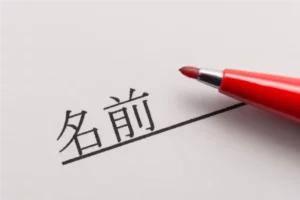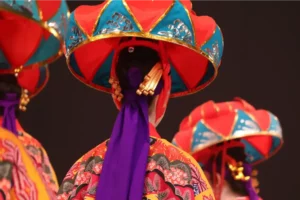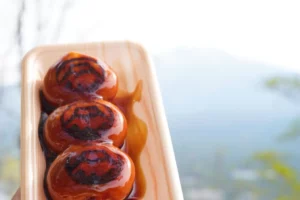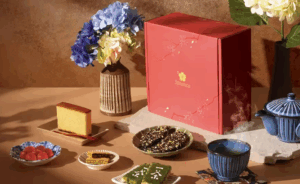Bundle up and get ready to discover the magic of happy holidays in Japan! From lively games to serene shrine visits, Japan’s winter holidays have something for everyone. So, grab a cup of hot tea and join the fun as we dive into the heartwarming traditions that make this season in Japan truly special.
Table of Contents
ToggleWinter Solstice Yuzu Baths
In Japan’s Winter Solstice, called “Toji,” people do a particular tradition. They take warm baths with yuzu, sweet-smelling citrus fruits from across East Asia. It’s a tradition that shows how Japan combines nature, health, and old ways.
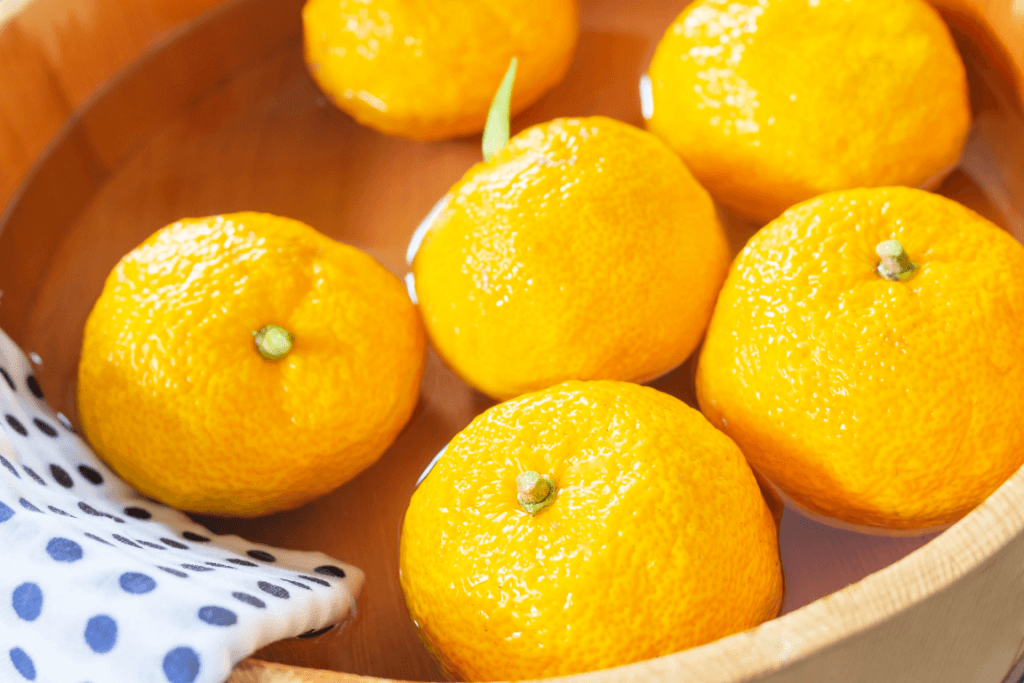
They put whole or cut yuzu fruits in hot water, making a cozy atmosphere. The pleasant smell of citrus helps with feeling down in winter, and it’s also thought to be good for the skin. Doing this during the Winter Solstice is a cultural and spiritual thing. It gives a quiet time to think about the seasons changing and find a balance in a busy life.
Nowadays, in Japan, yuzu baths are a favorite tradition. People do it at home or in public bathhouses, coming together with family and friends. Try this Japanese tradition as the Winter Solstice gets close. Let the pleasant smell and warmth take you to a calm place, reflecting on the year’s longest night.
Hatsumode
In Japan, when the New Year starts, everyone focuses on “hatsumode,” a big tradition where people visit a shrine for the first time. This tradition mixes spirituality, thinking about the past, and celebrating together. Hatsumode usually happens in the first days of January, and many people from all over the country go to shrines.
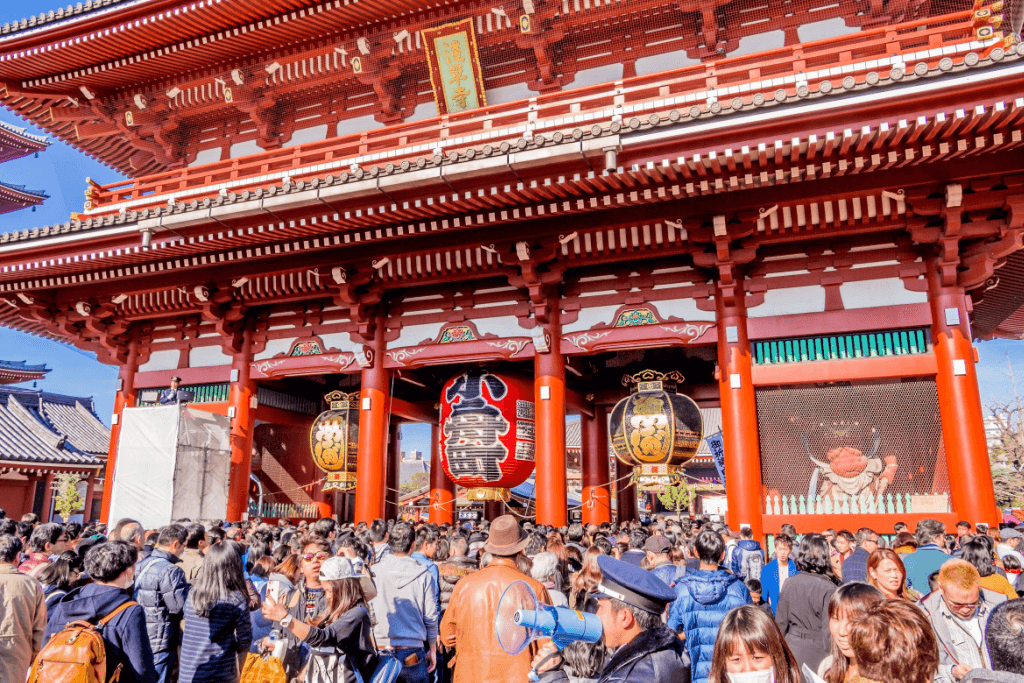
The main idea is to pray for good health, success, and luck in the new year. People also show thanks for the past and ask for blessings for the future. When visiting, many people buy unique omamori charms for protection and luck. These charms are like reminders of the spiritual connection made during hatsumode. Families and friends gather to celebrate the new year, creating a unique atmosphere with old customs and wishes for a great future.
In today’s Japan, hatsumode combines old traditions and new celebrations. The shrines are all festive with decorations, food stands, and performances. Balancing the old ways with the excitement of happy holidays!
Are you interested in enjoying some amazing snacks during these happy holidays? Check out Sakuraco! Sakuraco delivers traditional Japanese snacks, teas, and sweets from local Japanese makers directly to your door so you can enjoy the latest delicacies directly from Japan!
Bonenkai
During the happy holidays in Japan, there’s a lively tradition called bonenkai, also known as the “forget-the-year party.” It happens a few weeks before the New Year, and it’s a time for friends, colleagues, and acquaintances to get together. They say goodbye to the year ending and get excited about the new one coming.

People also enjoy delicious meals at these parties, chat, and share laughs, stories, and good wishes. It’s a happy time where everyone can chill, release stress, and strengthen their connections before the year ends. In Japanese work culture, bonenkai is a big deal because colleagues show they appreciate working together, creating a feeling of togetherness and teamwork.
Bonenkai isn’t just an old-fashioned thing anymore. Nowadays, many places throw themed parties and entertainment, making it fun in cozy hangout spots, trendy restaurants, or lively karaoke places. As the year-end gets closer, consider joining the heartwarming bonenkai tradition. It’s all about enjoying snacks and a happy vibe, making it a fantastic way to end the year with warmth and togetherness.
New Year’s Games!
During Japan’s New Year celebrations, they play cool traditional games that make the festivities even more fun. One of these games is hanetsuki, like badminton but using special hagoita paddles. People show off their skills by hitting a shuttlecock back and forth, creating a lively and competitive vibe.
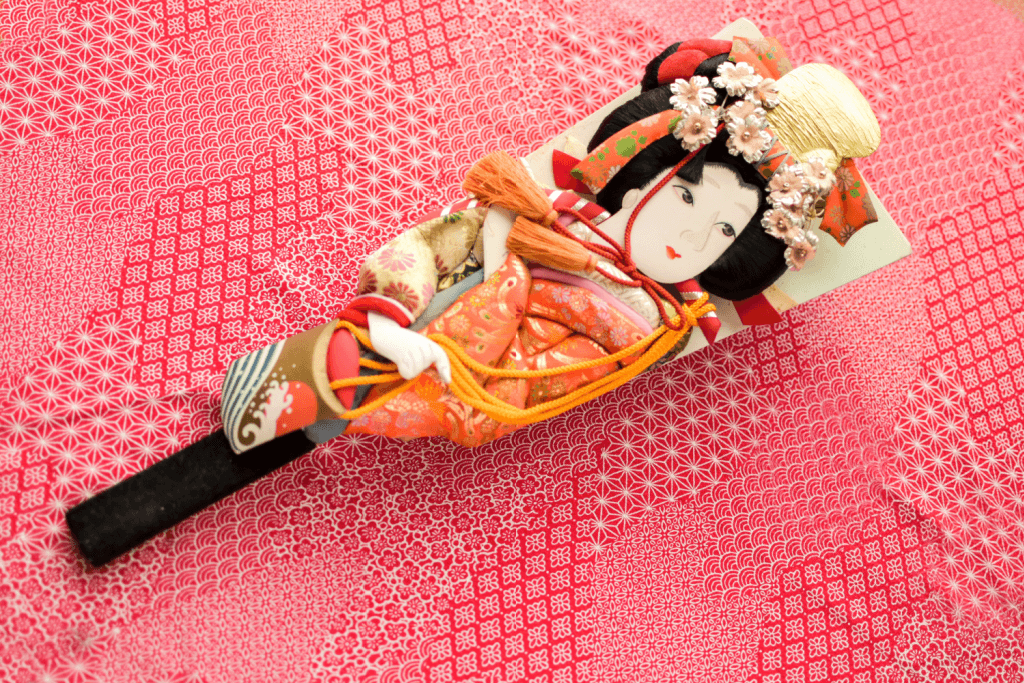
Another favorite tradition is takoage, where colorful kites fill the sky. Families and friends gather in open spaces, flying kites and making a colorful scene against the New Year’s sky. The kites are fun and beautifully made, adding excitement and hope for the new year.
Then there’s karuta, a card game everyone, young and old, loves playing. In this game, you match pairs of cards with pretty pictures or poems on them. Karuta competitions test your memory and how fast you can react, but they’re also a way to celebrate Japan’s rich culture and artistry.
Why should I enjoy these happy holidays?
Japan’s holidays mix old traditions with new stuff, making a nice combo of the past and the present. Whether the lively bonenkai parties, the calm times at shrines during hatsumode, or the relaxing yuzu baths in the Winter Solstice, each event brings people together, making everyone feel connected, renewed, and happy.
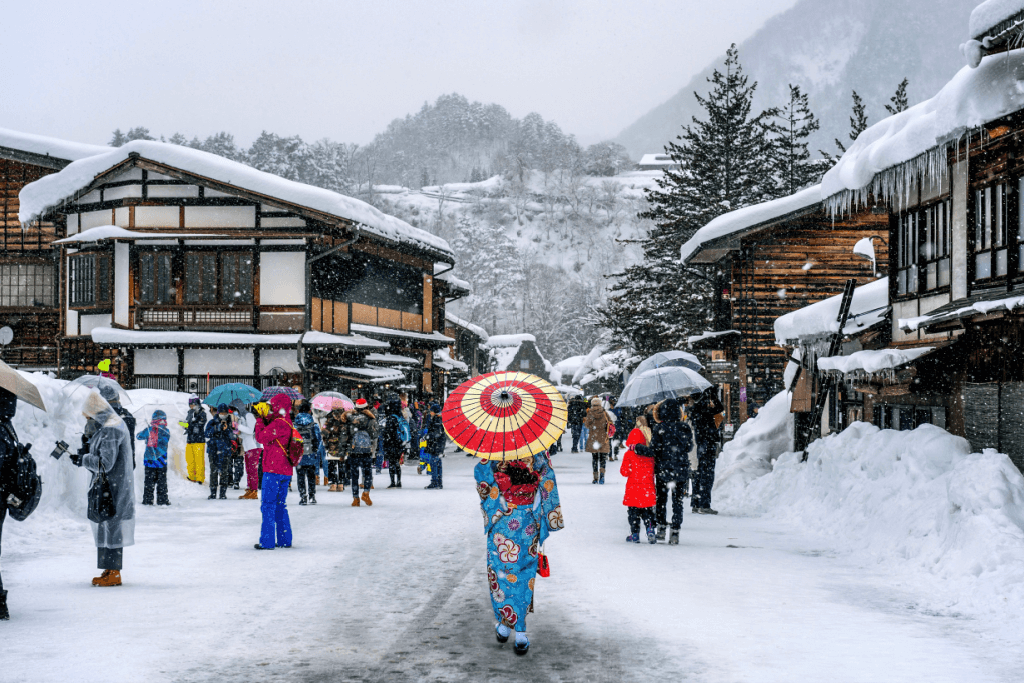
These celebrations are not just fun; they also have deep meaning, connecting us to Japan’s past and the values that make Japan what it is. Would you like to celebrate the holidays in Japan? Tell us in the comments below!





